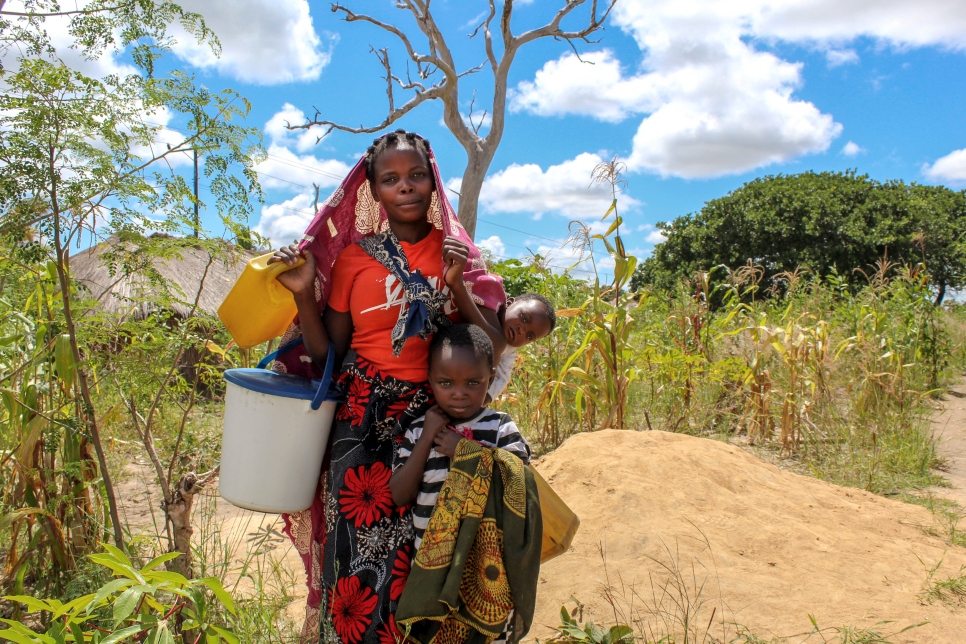This is a summary of what was said by UNHCR spokesperson Babar Baloch – to whom quoted text may be attributed – at today's press briefing at the Palais des Nations in Geneva.
 A displaced mother and her children fetch water in Intele IDP site in Montepuez District, Cabo Delgado, Mozambique. © UNHCR/Martim Gray Pereira
A displaced mother and her children fetch water in Intele IDP site in Montepuez District, Cabo Delgado, Mozambique. © UNHCR/Martim Gray Pereira
UNHCR, the UN Refugee Agency, is deeply concerned by the humanitarian consequences of the rapid escalation of violence in northern Mozambique, where some 30,000 people have fled the coastal town of Palma since it came under attack by armed groups on 24 March. We are especially worried about the safety and well-being of the most vulnerable among the displaced, including women and children.
Dozens of people were reportedly killed during the attacks while thousands fled on foot, by road and by sea. Many more are believed to still be trapped inside Palma. Those who fled have faced significant barriers trying to reach safety both inside the country and while attempting to cross borders.
The ongoing armed conflict in the oil- and gas-rich Cabo Delgado province has resulted in grave rights abuses, the disruption of critical services and severe impact on civilians, particularly children who account for almost half of the displaced population.
Women and children also make up nearly 80 per cent of the victims of human rights abuses that UNHCR teams are supporting along with other internally displaced people in Pemba, Mueda, Montepuez, Negomano and Quitunda.
Equally concerning is the separation of families. Hundreds of children have arrived traumatized and exhausted after being separated from their families. Many others have come with their mothers.
Those escaping violence are arriving with no belongings, often with health issues including injuries and severe malnutrition.
UNHCR, working with UNICEF and other partners, is referring vulnerable displaced children to appropriate services for family reunification, mental health and psychosocial support, as well as material assistance.
Some people are still fleeing Palma, but with only a few evacuation routes remaining open, we are worried for those who are unable to leave the area.
In Quitunda, Palma area, UNHCR recently collected reports of grave abuses committed against vulnerable groups, including physical assaults on people trying to flee to safer areas on boats.
Since 2017, the conflict in northern Mozambique has left tens of thousands of people dead or injured, and forcibly displaced more than 700,000 people in Cabo Delgado, Nampula, Niassa, Sofala and Zambezia provinces.






